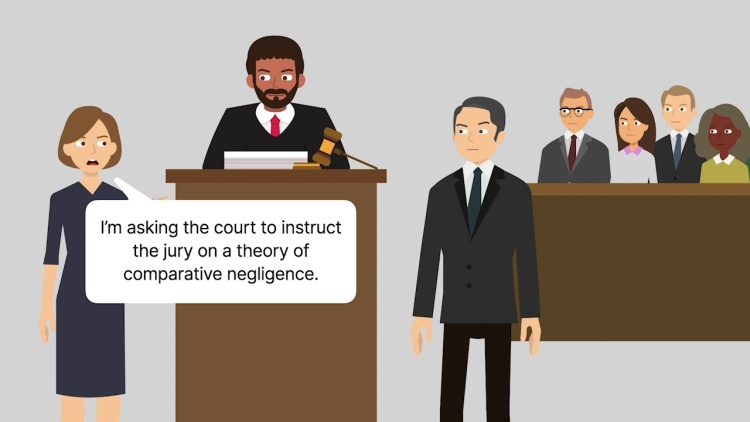Hoffman v. Jones
Supreme Court of Florida
280 So.2d 431 (1973)
- Written by Nicholas Decoster, JD
Facts
[Editor's Note: The Florida Supreme Court's opinion in this case does not include a statement of the facts. The facts provided here are taken from the Florida District Court of Appeals' very brief summary of the factual background of this case in Jones v. Hoffman, 272 So.2d 529 (1973).]
William Harrison Jones, Jr. was killed in a car-truck accident. Jones's widow (plaintiff), in her individual capacity and as administratrix of Jones's estate, brought an action against Philip Hoffman and Pav-a-Way Corporation (defendants), asserting that Hoffman was negligently operating a truck owned by Pav-a-Way at the time of the accident. The defendants asserted a defense of contributory negligence. At trial, Jones requested a jury instruction on the parties' comparative negligence, but the trial judge refused. The jury found in favor of the defendants. The district court of appeal certified and submitted to the Supreme Court of Florida the question of whether, in a negligence case, the rule holding contributory negligence as a complete bar to a plaintiff’s recovery should be replaced with a theory of comparative negligence, which would allow a trier of fact to apportion damages based on the comparative negligence and damages of the involved parties.
Rule of Law
Issue
Holding and Reasoning (Adkins, J.)
Dissent (Roberts, J.)
What to do next…
Here's why 907,000 law students have relied on our case briefs:
- Written by law professors and practitioners, not other law students. 47,100 briefs, keyed to 996 casebooks. Top-notch customer support.
- The right amount of information, includes the facts, issues, rule of law, holding and reasoning, and any concurrences and dissents.
- Access in your classes, works on your mobile and tablet. Massive library of related video lessons and high quality multiple-choice questions.
- Easy to use, uniform format for every case brief. Written in plain English, not in legalese. Our briefs summarize and simplify; they don’t just repeat the court’s language.







